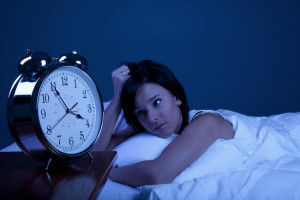Insomnia: what to eat for better sleep
- Amanda Cleghorn
- Jan 24, 2016
- 3 min read
Updated: Jan 12

Defined as ‘the inability to obtain an adequate amount or quality of sleep’, insomnia can have debilitating effects on daily life. Difficulty falling asleep, waking during the night, or waking very early, can be linked to a multitude of factors, including stress, menopause, depression, medication, physical pain and consumption of caffeine and alcohol. Sleep experts advise us to practise good ‘sleep hygiene’ habits, such as banishing technology from the bedroom; keeping the environment dark, quiet and cool; and maintaining a regular wind down routine before bedtime. However, it is also important to consider nutritional influences on sleep patterns.
Sugar, caffeine and alcohol all have a stimulatory effect on the body, causing blood sugar levels to surge, insulin to be released and glucose to either be directed into cells where it can be converted to energy, or stored as fat. Blood sugar levels then drop significantly, triggering the release of the stress hormones adrenalin and cortisol, which increase the heart rate and release stores of sugar into the blood, preparing the body for action. Such dramatic fluctuations in blood sugar can either prevent you from getting to sleep, perhaps through feeling hungry or irritable, or wake you up with your heart and mind racing. Blood sugar can be maintained at balanced levels by eating regular meals and snacks, combining unrefined carbohydrates (such as wholegrain oats, brown rice and lentils instead of products containing white flour or sugar), with protein and essential fats (from oily fish, nuts, seeds and oils).
Certain foods can influence the production of hormones and neurotransmitters (brain chemicals) which govern the sleep cycle. Melatonin is the primary sleep hormone, produced by the tiny pineal gland in the brain, in response to darkness. Caffeine may suppress melatonin production for up to 10 hours.
Melatonin is made from the neurotransmitter serotonin, which in turn is made from 5-hydroxytryptophan (5-HTP). 5-HTP is derived from the amino acid tryptophan, which is found in protein-rich food, particularly turkey, chicken, tuna, eggs, oats, cottage cheese, tofu, beans, nuts, seeds, avocado and banana. 5-HTP can be supplemented, but is contra-indicated with anti-depressant medications.
In order to convert amino acids such as tryptophan into hormones and neurotransmitters, the body requires some carbohydrate, which triggers insulin to help transport them into brain cells, so it can be useful to eat a small snack containing carbohydrate before bedtime, such as half a banana, or an oatcake with cottage cheese. This will have the added benefit of helping to maintain blood sugar levels throughout the night. The conversion of amino acids into brain chemicals also requires B vitamins, which are depleted by stress, sugar, alcohol and medication such as the contraceptive pill. Good sources of B vitamins are fish, poultry, lean meat, eggs, beans, lentils, wholegrains, nuts, seeds and soya products.
Magnesium is known as ‘nature’s tranquiliser,’ thanks to its relaxing effect on the body. Magnesium deficiency is very common, due to intensive farming causing depleted levels in soil and subsequently in plant foods. It is found in highest amounts in dark green leafy vegetables like broccoli, cabbage, spinach and kale, as well as in nuts and seeds, especially almonds and pumpkin seeds. However, it is relatively hard for the body to absorb adequate amounts of magnesium from food, particularly if the digestive system is compromised in any way.
A supplement of magnesium and calcium in a ratio of 2:1, taken half an hour before bedtime, can have a positive effect on sleep. Herbal supplements may also be effective for some people and include valerian, hops, passionflower and lemon balm, although supporting evidence for their efficacy is less conclusive.
As with all supplements, it is best to seek professional nutrition advice, particularly if you are taking any medication.





תגובות